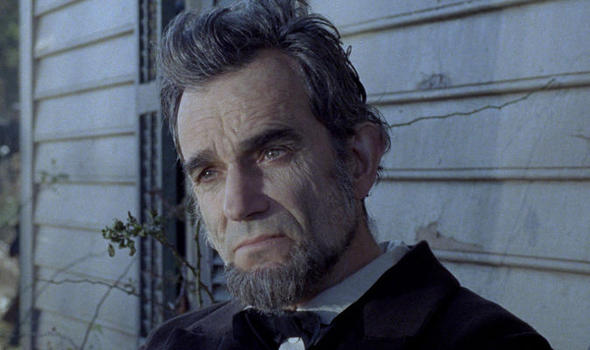The rather lovely tone of Miguel Gomes’ Tabu is set from the beginning, in a poetic voiceover prologue about a widowed huntsman in Africa, accompanied by a beautiful, simple piano piece, and dripping in that peculiarly Portuguese saudade.
A title “Paradise Lost” takes us to modern-day Lisbon, where Pilar (Teresa Madruga), in her sixties, has a deadpan hilarious encounter in a railway station. She has a neighbor in her eightes, Aurora (Laura Soveral), who is a bit nutty (and ineffably stylish). She prays a lot, supports various humanitarian causes, and is constantly observed to be “kind” by various other people. Her relationship with Aurora and Aurora’s African nursemaid Santa (Isabel Cardosa) is nicely varied from the warmth to prickliness of neighboring lives, and when the old lady is at death’s door, Pilar is asked to track down a Mr. Ventura, known only from Aurora’s raving about her crocodile being in his house next door.

All this is shot in beautiful silvery black and white, but the photography really comes into its own (switching from 35mm to 16mm) in the second half of the film, as do the reverberations of the titles (F.W. Murnau’s dreamy 1931). More than anything, however, the first half’s frequent recurrence of story-telling takes over. Like Gomes’ fascinating Our Beloved Month of August [2008], this is a film of two distinct halves, with a transition that is quicker than the eye. The switch here is an enchanting surprise, even if it is impossible to read or write about the film without reference to it.

We’re returned to Africa in the early ’60s for a heated tale of passion in the tropics, familiar enough, but told here quite charmingly afresh. From the gentle, old-person pace of the first half, things pick up quite a bit, but Gomes imposes a different restraint: in an unusual and mostly successful move, we hear on the soundtrack the story being told in voiceover, various diegetic sounds from footfall to wildlife, an airplane prop to a gunshot, but no dialogue. It’s a little disconcerting at first to see the lips move and nothing come out, as are certain “missing” sounds, like the splash of a swimming pool, but for the most part this works as a fascinating and beautiful conduit for the magic of silent cinema, cast in a new form, and a bittersweet lament for the inaccessibility of the past.
The other thing we hear is some marvelous native singing and, given Gomes’ fondness for amateur bands, the songs of the rather cool proto-rock and roll combo, playing Phil Spector songs in Portuguese, led by Ventura’s friend Mario, and featuring himself behind the kit. The guys are a great pair of rakish, adventurous young bucks, Ventura in particular (Carloto Cotta), with killer cheekbones, clear, bright eyes, and a dashing Errol Flynn mustache. It is as inevitable that he and the captivating Ana Moreira as young Aurora, the great white huntswoman, will get together, as it is that things won’t end well, but the moment of adultery comes suddenly and perfectly.

If elements of Pilar’s character in the first half feel a little irrelevant by the end, she has at least provided an effective counterpoint of saintliness to the sin of the second part. The gentle tone of melancholy is consistent, however, the romantic mood epitomized by gorgeous net-draped interiors flooded with strong African sunlight, and swept along by the truly poetic writing of the voiceover. The leads are handsome enough to recall the silent days, and Norma Desmond’s declaration that they had faces back then. This is a magical, transportative film of deep feeling. Plus the miniature crocodile that brings the lovers together is pretty damn cool.
Film’s Festival Page: Tabu
World Cinema Section
Country: Portugal | Germany | Brazil | France
Year: 2012
Director: Miguel Gomes
Screenwriters: Miguel Gomes, Mariana Ricardo
Producers: Luís Urbano, Sandro Aguilar
Executive Producer: Luís Urbano
Cinematographer: Rui Pocas
Editors: Telmo Churro, Miguel Gomes
Production Designer: Bruno Duarte
Cast: Teresa Madruga, Laura Soveral, Ana Moreira, Carloto Cotta, Manuel Mesquita, Isabel Cardoso, Ivo Muller
Running Time (minutes): 111

